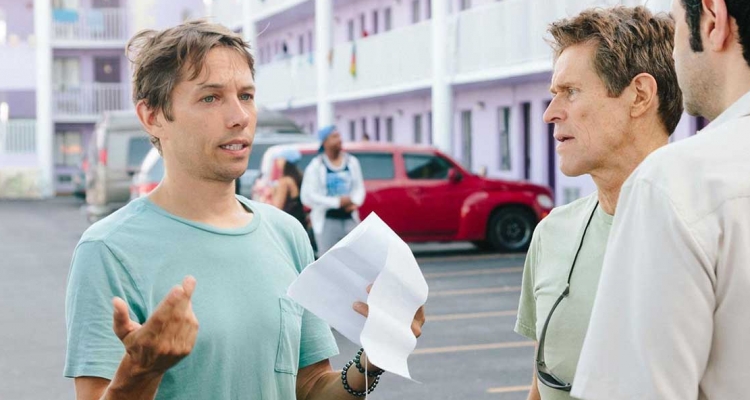The first time I met Sean Baker, director of the vibrantly heartbreaking “The Florida Project,” was two years ago, in a noisy Berlin bar after a screening of his last, justly celebrated film, “Tangerine.” It occurred to me as I tottered home a little drunk at the end of the night, that even though it was just a casual chat, he seemed part of a new breed of independent director, managing to gain exposure for a most deserving, low-budgeted movie with apparently fewer of the compromises usually demanded. I knew the success of “Tangerine” had not come easy, nor was it an overnight process, but Baker seemed living proof that there was a way up in this industry, even if, contrary to so many others, you were doing it for the right reasons.
The second time I met Sean Baker was last weekend, at the Antalya Film Festival in Turkey, where “The Florida Project” would go on to pick up the Special Jury Prize. In the interim, I’d seen, loved and reviewed the film in Cannes, (where a colleague had also interviewed him about it) and it had started picking up Oscar buzz (here he is talking via podcast to Greg Ellwood, our Oscars writer). And crucially, in the weeks prior, the Harvey Weinstein scandal had shaken the foundations of the “independent” movie system.
A lot has obviously been written about Weinstein and the harrowing testimonies of his dozens of accusers, but one side-aspect of the whole enraging business is the observation that such a dam burst (which now appears to be gaining momentum with the allegations of sexual misconduct against James Toback, Kevin Spacey and Brett Ratner) could only have been possible when Weinstein was no longer at the height of his power. With Weinstein for so long the lynchpin of the Oscar conversation of which “The Florida Project” is now part, and with his name for decades synonymous with Hollywood’s idea of independent cinema, it felt like a perfect time to discuss this particular, pivotal moment with Baker, who, as much as any director, seems at the forefront of what-comes-next.
[There is a spoilery section in the middle, but it’s clearly marked.]

So tell me about how “The Florida Project” has come to be part of the Oscar machine. Was it always a strategy of A24’s?
That’s the weird thing: They organically let it play out and now that they’re seeing that it has that buzz, that it’s a real thing coming from the industry, now they’re saying “We’re gonna roll with this.” But they’re smart, they’re not trying to push something that isn’t there. They’re waiting to see if it’s real.
And actually it’s only just as of yesterday, that it really feels like the wheels are turning. Brooklynn [Prince, the film’s star] is in LA for 2 1/2 weeks now doing press and just kicking butt. Willem [Dafoe, hotly tipped for Supporting Actor nod] is taking time off from his shoot with Julian Schnabel — he’s playing Van Gogh in the South of France — to come and do some promotional stuff. But this is something that wasn’t ever a part of my thinking. Yes, I admit, I was thinking Gothams, [Independent] Spirits, but the fact that it’s in that conversation — it’s part of a world that I’m not really familiar with.
I think that’s because, and I don’t want to embarrass you, but you struck me back when we met as, how can I put it, a genuine filmmaker, someone doing it for the right reasons…
[duly embarrassed] Haha, well, that’s good. Thank you.
..and it also seems to me emblematic of a sea change in the industry, obviously highlighted by the biggest thing going on right now which is the ignominious end of the Harvey Weinstein era.
It does seem to be changing to a more inclusive way of working. And that, I think, is a very positive change to the way Hollywood and independents have been for the last 75 years. It’s part of a new generation that’s on the right side of history — there’s a real push and a real need and a real desire to see diversity in front of and behind the camera. I feel A24 are part of that sensibility. Even though, I dunno if you know but the people who make up A24, yes, there’s a great young team there, but the principal staff have been in the industry for a while.
And I’m actually older than people think, I’m actually ten years older than most of my peers who are breaking through right now — I’m ten years older that the Safdies and [David] Lowery and … name some others. So I’m really happy that this change is happening in my lifetime. I mean, looking back in hindsight at the ’50s and ’60s in Hollywood and it always seemed so prehistoric but then you realize actually even for the last 20 years, when we thought we were so progressive thinking, it was the same.

